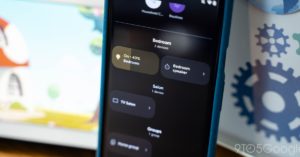Music education is essential for a child’s brain development since it helps kids cope with stress, develop their social skills, and express their creativity. But nowadays, not many school systems include music education. More and more schools are removing it from the curriculum, forcing parents who want their children to learn music to hunt for private classes. Families who can’t afford private courses suffer from this (which are usually quite expensive).
20 REASONS WHY STUDENTS NEED MUSIC EDUCATION TEACHING MUSIC IMPROVES CHILDREN’S LANGUAGE AND THINKING Schoolchildren who begin their musical education at a young age have higher language skills and expanded cognitive capacities since music enhances the left side of the brain more effectively. Younger kids’ minds absorb information more quickly, and a song can leave a lasting impression on them.
THE CAPACITY TO RECALLECT Typically, when playing, pupils use a music sheet. They rely on their capacity for comprehension and retention, and this talent will be useful even outside of the classroom.
THEIR SCHOOLWORK IS BETTER Education in music fosters artistic development. Here, students learn how to polish their work and avoid submitting work that is below par. The fact that it can be applied to all aspects of academics is a plus.
SYNCHRONIZATION IS BETTER Schoolchildren use their hands and eyes when practicing music. The hand-eye coordination has improved significantly. The same principles apply to the development of a student’s motor abilities when they play games or musical instruments.
A sense of completion It’s not simple to learn the keys and notes of a new musical instrument. Although it can be difficult, with enough practice, it can be mastered. This is an excellent strategy for inspiring pupils since they will be thrilled with achievement, even if it just represents a slight improvement over the previous attempt.
CHILDREN REMAIN INTERESTED IN SCHOOL Since music education is such a fun subject, students will not only stay in school longer but also perform better in other academic areas. This is due to how engaging and appealing studying music is.
SUCCESSFUL ACTIVITY IN THE WORLD Drug usage is uncommon among schoolchildren who join a group or an ensemble over their lifetime. A student’s intelligence can considerably increase as well as their abilities and personalities can be developed through music.
emotional expansion Due to emotional development, musical students are more understanding of other people’s viewpoints. They typically have a high level of confidence and can handle anxiety better than people who do not study music.
LEARNERS TO ACHIEVE PATTERN COMPREHENSION Having a music tutor can help a student’s math and pattern-understanding skills. When you perform music, you can do something repeatedly in a fun way.
BETTER SAT RESULT According to a research, students who enroll in music appreciation classes score significantly higher on their SATs—63 points higher on the verbal section and 44 points higher on the arithmetic section.
PERFECTED AUDITORIAL SKILLS Students who practice music have stronger hearing and can more easily identify predictable patterns in the sounds around them. They are able to detect important components that contain information in sounds.
THE IMPACT OF MUSIC ON THE MIND AND ACADEMIC INQUISITION Early exposure to music instruction helps foster in young children a favorable outlook toward learning and curiosity. The brain and a child’s thinking are both improved by creative learning.
MUSIC LOWERS STROKE Students can lessen their tension in one way by performing a musical piece. If the music is peaceful, in particular, this can aid in the kids’ relaxation.
A MUSICAL SETUP CAN TEACH DISCIPLINE Since learning to play an instrument entails obligations like scheduling time for practice and the duty of becoming an expert on a particular instrument. This calls for discipline, which can be taught to students at an early age.
PREPARE FOR THE ARTS INDUSTRY More artistic professionals have emerged as the world changes, and it’s possible that they will advance more quickly than others in the days to come. Making use of creative education can prepare students for the workforce of the twenty-first century.
RENEWAL OF IMAGINATIVE THINKING Students from a variety of disciplines value imaginative thinking because they must utilize it while composing academic essays, making life plans, etc. Students that struggle in this subject are more likely to seek out specialized essay writing services, such as CustomWritings.com , for qualified assistance with academic writing. Students who take art classes frequently exhibit imaginative thinking. Due to their ability to think critically and draw diverse conclusions, this enables pupils to make better decisions.
MUSIC CAN BOOST STRUCTURAL CREATIVITY Learning music can help pupils become more structurally brilliant because it improves their ability to build mental images and understand the world clearly.
encourages cooperation Since most musical training programs require teams, like a band or an ensemble, the youngsters can make friends while they collaborate.
LOOKING RESPONSIBLY AT CHANCES It can be intimidating to perform a musical instrument in front of an audience. Students learn how to take risks and face their concerns by doing this. They will be able to reach their objective and climb to the top of the ladder thanks to this in the future.
A RISING SELF-ESTEEM Encouragement from parents and teachers should be given to pupils anytime they are practicing an instrument as this will help them develop their self-esteem. Additionally, this will enhance how pupils interact with their teachers and peers.
LAST WORDS One of the most important aspects of benefits of music education in schools is that it transcends linguistic boundaries. Because of music, people from many spheres of life and civilizations can interact. There are no educational restrictions on music. You’ll discover that even a student who struggles in the classroom can excel in the arts. Students who struggle in arithmetic classes often have no trouble remembering and utilizing the various musical rhythms. The students’ self-esteem is greatly increased by this.
The ultimate goal for many students is to become great at one thing and develop a sense of pride after successfully completing a task. One avenue that works for that is music education.







